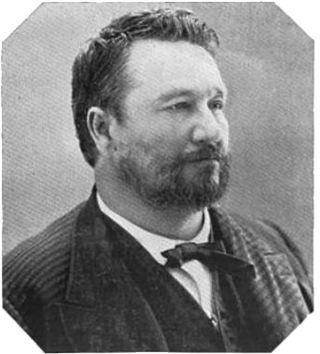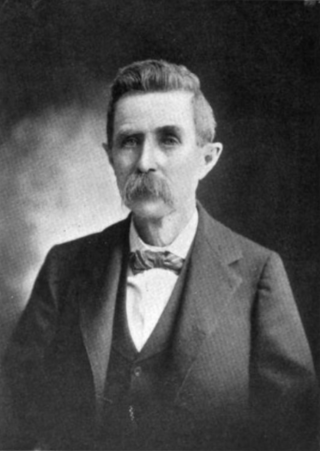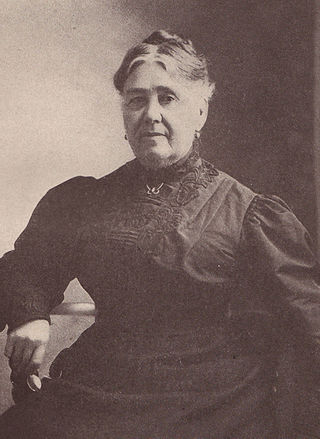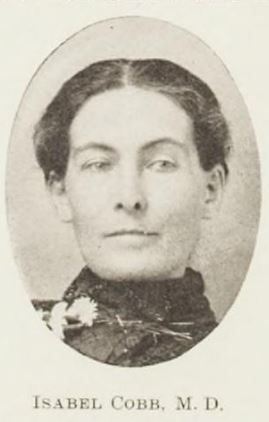Related Research Articles

Claremore is a city and the county seat of Rogers County in Green Country or northeastern Oklahoma, United States. The population was 19,580 at the 2020 census, a 5.4 percent increase over the figure of 18,581 recorded in 2010. Located in the foothills of the Ozark Mountains. It is home of Rogers State University and is part of the Tulsa Metropolitan Area.
Cherokee Nation v. Georgia, 30 U.S. 1 (1831), was a United States Supreme Court case. The Cherokee Nation sought a federal injunction against laws passed by the U.S. state of Georgia depriving them of rights within its boundaries, but the Supreme Court did not hear the case on its merits. It ruled that it had no original jurisdiction in the matter, as the Cherokees were a dependent nation, with a relationship to the United States like that of a "ward to its guardian," as said by Chief Justice Marshall.

Chadwick "Corntassel" Smith is a Native American politician and attorney who served as Principal Chief of the Cherokee Nation. He was first elected in 1999. Smith was re-elected to a second term as Chief in 2003 and a third term in June 2007 with 59% of the vote. He was defeated in his attempt to get elected to a fourth term in office by Bill John Baker 54% to 46% in the 2011 election and he lost again to Baker in 2015, receiving 28% of the vote. Prior to being elected Principal Chief, he worked as a lawyer for the tribe and in private practice.

Nanyehi, known in English as Nancy Ward, was a Beloved Woman and political leader of the Cherokee. She advocated for peaceful coexistence with European Americans and, late in life, spoke out for Cherokee retention of tribal hunting lands. She is credited with the introduction of dairy products to the Cherokee economy.
The Battle of Claremore Mound, also known as the Battle of the Strawberry Moon, or the Claremore Mound Massacre, was one of the chief battles of the war between the Osage and Cherokee Indians. It occurred in June 1817, when a band of Western Cherokee and their allies under Chief Spring Frog (Too-an-tuh) attacked Pasuga, an Osage village at the foot of Claremore Mound. The village was nearly empty; only women, children, and the very sick and elderly remained there. Most of the village was currently away on a seasonal hunt that often lasted up to three or four months. The Cherokee killed or captured every remaining member of Chief Clermont's band and destroyed everything they could not carry away. Historians consider it one of the bloodiest Native American massacres in modern history.
Jesse Bartley Milam (1884–1949) was best known as the first Principal Chief of the Cherokee Nation appointed by a U.S. president since tribal government had been dissolved before Oklahoma Statehood in 1907. He was appointed by President Franklin D. Roosevelt in 1941, who reappointed him in 1942 and 1943; he was reappointed by President Harry S. Truman in 1948. He died while in office in 1949.

Dennis Wolf Bushyhead was a leader in the Cherokee Nation after they had removed to Indian Territory. Born into the Wolf Clan, he was elected as Principal Chief, serving two terms, from 1879 to 1887.

Joel Bryan Mayes was Principal Chief of the Cherokee Nation.

Samuel Houston Mayes of Scots/English-Cherokee descent, was elected as Principal Chief of the Cherokee Nation in Indian Territory, serving from 1895 to 1899. His maternal grandfather belonged to the Deer clan, and his father was allied with members of the Cherokee Treaty Party in the 1830s, such as the Adair men, Elias Boudinot, and Major Ridge. In the late nineteenth century, his older brother Joel B. Mayes was elected to two terms as Chief of the Cherokee.
The Cherokee Female Seminary was built by the Cherokee Nation in 1889 near Tahlequah, Indian Territory. It replaced their original girls' seminary, the first Cherokee Female Seminary, that had burned down on Easter Sunday two years before. The Seminary was listed on the National Register of Historic Places in 1973.

Clement Vann Rogers was an American politician and judge in Indian Territory. Clem Rogers' parents were both mixed-blood Cherokees who moved to Indian Territory in 1832, several years before the Trail of Tears. Before the American Civil War, Clem allied with the "Treaty Party", a Cherokee faction that supported signing the Treaty of New Echota. When the Civil War broke out, Clem enlisted in the Confederate Army, and served under General Stand Watie. After the war, he became active in Cherokee politics, first elected as a judge in the Cooweescoowee District, then served five terms in the Cherokee Senate. He later served as a delegate to the Oklahoma Constitutional Convention. Rogers was the father of entertainer Will Rogers.

For the American educator, see Martha Berry.
John Rogers was the last elected Principal Chief of the Cherokee Nation West elected in December 1838 by the faction of Old Settlers who rejected the Cherokee Nation constitution of 1839.
The Cherokee Male Seminary was a tribal college established in 1846 by the Cherokee Nation in Indian Territory. Opening in 1851, it was one of the first institutions of higher learning in the United States to be founded west of the Mississippi River.

Lulu M. Hefner was a Cherokee businessperson from Nowata, Oklahoma who became successful in the oil industry. She was notable for being the first women to drill for oil on her own property and the first female oil operator in Oklahoma.

Jennie Ross Cobb is the first known Native American woman photographer in the United States. She began taking pictures of her Cherokee community in the late 19th century. The Oklahoma Historical Society used her photos of the Murrell Home to restore that building, which is now a museum. Trained as a teacher, Cobb worked as a florist in Texas before returning to Oklahoma to spearhead the restoration of the Murrell Home.

Narcissa Clark Owen was a Native American educator, memoirist, and artist of the late 19th and early 20th century. She was the daughter of Old Settler Cherokee Chief Thomas Chisholm, wife of Virginia state senator Robert L. Owen Sr. and mother of U.S. Senator Robert Latham Owen Jr. and Major William Otway Owen. Narcissa Owen is most recognized for her Memoirs written in 1907, where she narrates accounts of her life along with the stories and culture of her Cherokee relatives.

Maggie Culver Fry (1900-1998) was the tenth poet laureate of Oklahoma, appointed in 1977 by Governor David L. Boren. Fry wrote her first poem at the age of 10 and now has more than 800 stories, poems, and articles published.

Isabel "Belle" Cobb was a Cherokee physician and educator best known for being the first woman physician in Indian Territory.
References
- ↑ Berry, Christina (2001-01-02). "Rachel Caroline Eaton -Cherokee Woman, Historian, and Educator". All Things Cherokee. Retrieved 2016-05-29.
- ↑ Partridge, Dennis N. (2014-04-05). "Biographical Sketch of Mrs. Rachel Caroline Eaton". Access Genealogy. Retrieved 2016-05-29.
- ↑ "Rachel Caroline Eaton - Teacher". Family Search. 2012-11-23. Retrieved 2016-05-29.